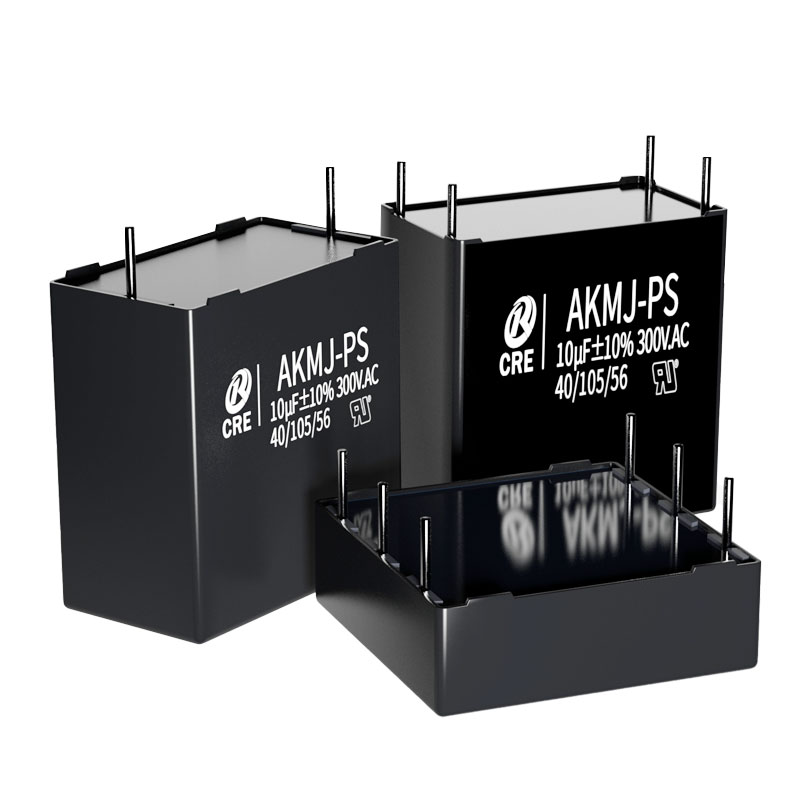- All
- Product Name
- Product Keyword
- Product Model
- Product Summary
- Product Description
- Multi Field Search
Views: 0 Author: Site Editor Publish Time: 2025-09-12 Origin: Site











In the realm of solar energy systems, the efficiency and reliability of solar inverters are paramount. Solar inverters play a critical role in converting the direct current (DC) generated by solar panels into alternating current (AC) that can be used by household appliances or fed into the grid. One of the key components that significantly impact the performance of solar inverters is the AC filter capacitor. These capacitors are essential for smoothing out the AC waveform and reducing electromagnetic interference (EMI), thereby enhancing the overall efficiency and lifespan of the inverter.
AC filter capacitors are designed to filter out unwanted frequencies from the AC signal, ensuring that the output is as close to a pure sine wave as possible. This filtering process is crucial because it minimizes the harmonic distortion that can lead to inefficiencies and potential damage to the electrical components connected to the inverter. By providing a stable and clean AC output, these capacitors help maintain the integrity of the power supply, which is vital for both residential and commercial solar energy systems.
The design and material composition of AC filter capacitors are tailored to withstand the high-frequency switching and voltage fluctuations typical in solar inverter applications. These capacitors often use polypropylene film as the dielectric material due to its excellent electrical properties, including high dielectric strength and low dielectric loss. This choice of material ensures that the capacitors can operate efficiently over a wide range of temperatures and environmental conditions.

Solar inverters are subjected to various electrical stresses, including voltage spikes and rapid switching transients. AC filter capacitors mitigate these stresses by absorbing and smoothing out the fluctuations in the AC signal. This capability not only protects the inverter's internal components but also enhances the overall system efficiency by reducing power losses associated with harmonic distortion.
Moreover, AC filter capacitors play a crucial role in reducing electromagnetic interference (EMI). EMI can cause disruptions in electronic devices and degrade the performance of the inverter. By filtering out high-frequency noise, these capacitors ensure that the inverter operates within the specified electromagnetic compatibility (EMC) standards, thus preventing interference with other electronic equipment.
The efficiency of a solar inverter is directly linked to its ability to convert DC to AC with minimal losses. AC filter capacitors contribute to this efficiency by ensuring that the AC output is smooth and stable. This stability reduces the thermal and electrical stress on the inverter, leading to lower operating temperatures and extended lifespan of the components.
Reliability is another critical aspect of solar inverter performance. By minimizing voltage fluctuations and harmonic distortion, AC filter capacitors help prevent premature failure of the inverter and associated components. This reliability is particularly important in remote or off-grid installations where maintenance and replacement can be challenging and costly.
Numerous case studies highlight the importance of AC filter capacitors in enhancing solar inverter performance. For instance, a study conducted on a large-scale solar farm demonstrated that the use of high-quality AC filter capacitors resulted in a 15% reduction in harmonic distortion and a 10% increase in overall system efficiency. These improvements translated into significant cost savings and increased energy output over the lifespan of the installation.
In another example, a residential solar installation experienced frequent inverter failures due to voltage spikes and EMI. By integrating advanced AC filter capacitors, the system's reliability improved dramatically, reducing downtime and maintenance costs. These real-world applications underscore the critical role that AC filter capacitors play in ensuring the optimal performance of solar energy systems.
Recent advancements in capacitor technology have led to the development of AC filter capacitors with enhanced performance characteristics. Innovations such as self-healing capabilities, improved thermal management, and increased voltage ratings have expanded the applicability of these capacitors in more demanding solar inverter applications.
Self-healing capacitors, for example, can automatically repair minor dielectric breakdowns, thereby extending their operational life and maintaining performance levels. Improved thermal management technologies have also been integrated into capacitor designs, allowing them to operate efficiently in high-temperature environments, which are common in solar installations.
In conclusion, AC filter capacitors are indispensable components in the design and operation of solar inverters. Their ability to filter out unwanted frequencies, reduce harmonic distortion, and minimize electromagnetic interference is crucial for maintaining the efficiency and reliability of solar energy systems. As the demand for renewable energy continues to grow, the importance of these capacitors will only increase. F